Hard Skills Versus Soft Skills: What’s the Difference?
A few weeks ago, I led the Decision Making Workshop for the’ You Grow Girl’ program. The workshop focused on introducing young girls to the importance of developing their decision-making skills. We discussed everything from values, to effective strategies used in making decisions that were in line with those values.
Decision-making is considered a soft skill. It plays a critical role in our work, in our extracurricular activities, and in our relationships. It is NOT a subject we take in high school (at least not as far as I am aware) and yet without a good understanding of how to make effective decisions, decisions in line with our values, we risk setting ourselves up for failure, unhappiness, and disappointment. Yikes.
“I can almost guarantee that if we all spend a little more time exploring the soft skills development in youth, those same youth will be better equipped to navigate the next chapter in their lives.”
As I explored the wonderful world of soft skills, I also explored the equally wonderful world of hard skills. And what follows is a summary of the two skill groups and a call out to educators, trainers, and coaches: if you are not already doing so while teaching the importance of hard skills, please take the time to share the importance of soft skill development with the young minds you have the privilege to work with, engage with and spend time with.
I recognise that during an already stressful year full of new normals, this may be challenging, but I can almost guarantee that if we all spend a little more time exploring the soft skills development in youth, those same youth will be better equipped to navigate the next chapter in their lives.
Hard Skills:
Hard skills can be defined as the specific knowledge and abilities that are learned through education or training (https://resumegenius.com/blog/resume-help/hard-skills). These are specific and can be measured. They are easily defined. They are technical aptitudes or knowledge.
Examples of hard skills include:
Computer skills
Language skills
Programming skills
Data Analysis
Project Management
““Hard skills are skills where the rules stay the same regardless of which company, circumstance or people you work with. In contrast, soft skills are skills where the rules change depending on the company culture and people you work with.” ”
Soft Skills:
Soft skills are non-technical skills that relate to how you work. They include how you interact with colleagues, how you solve problems, and how you manage your work (https://www.thebalancecareers.com/what-are-soft-skills-2060852).
Soft skills are sometimes referred to as ‘people skills.’ or ‘interpersonal skills.’ We demonstrate our soft skills through our work style. Soft skills are often hard to measure. They help us overcome obstacles and they help us develop good, healthy relationships.
Examples of soft skills include:
Communication
Decision Making
Leadership
Collaboration
Adaptability
Problem Solving
While hard skills may be developed inside the classroom, the gym, and the lab, we need to remember to incorporate soft skill development in those same classrooms, gyms, and labs. When we do so, we are setting our kids and our students up to being effective decision-makers, strong communicators, and inspiring leaders.
Image by Arek Socha from Pixabay



